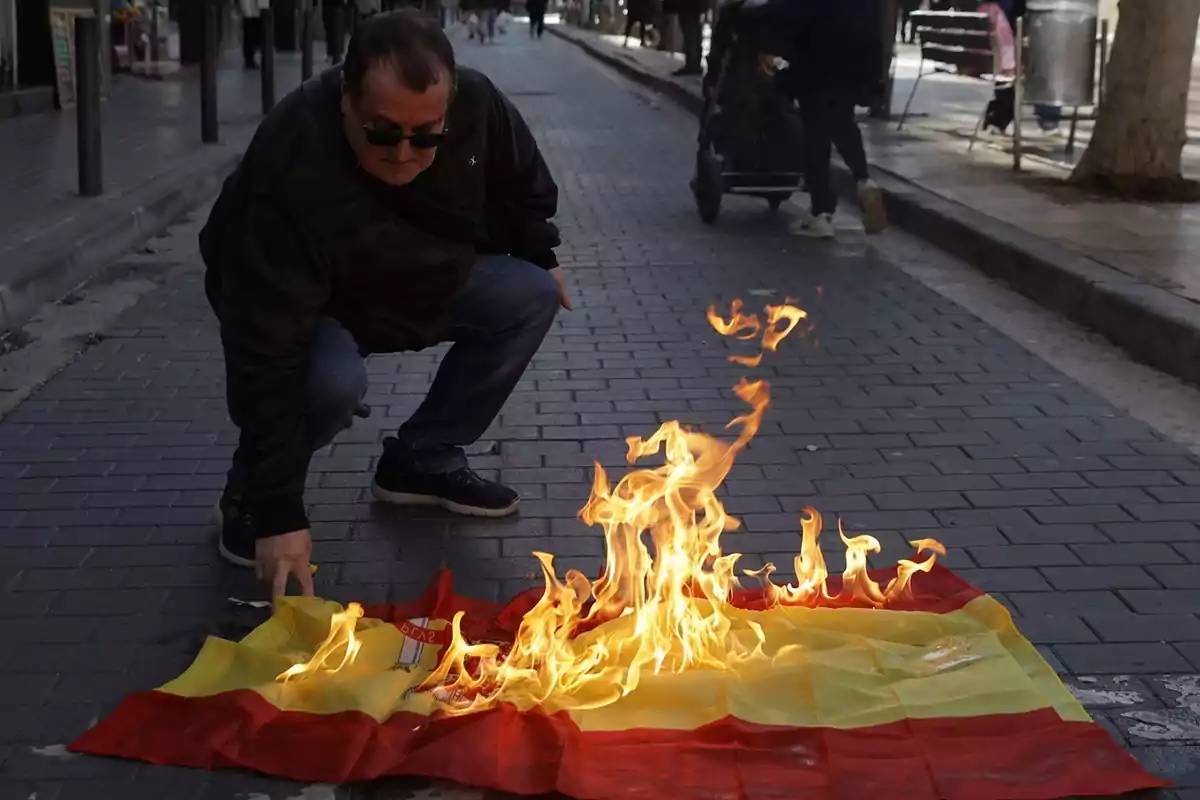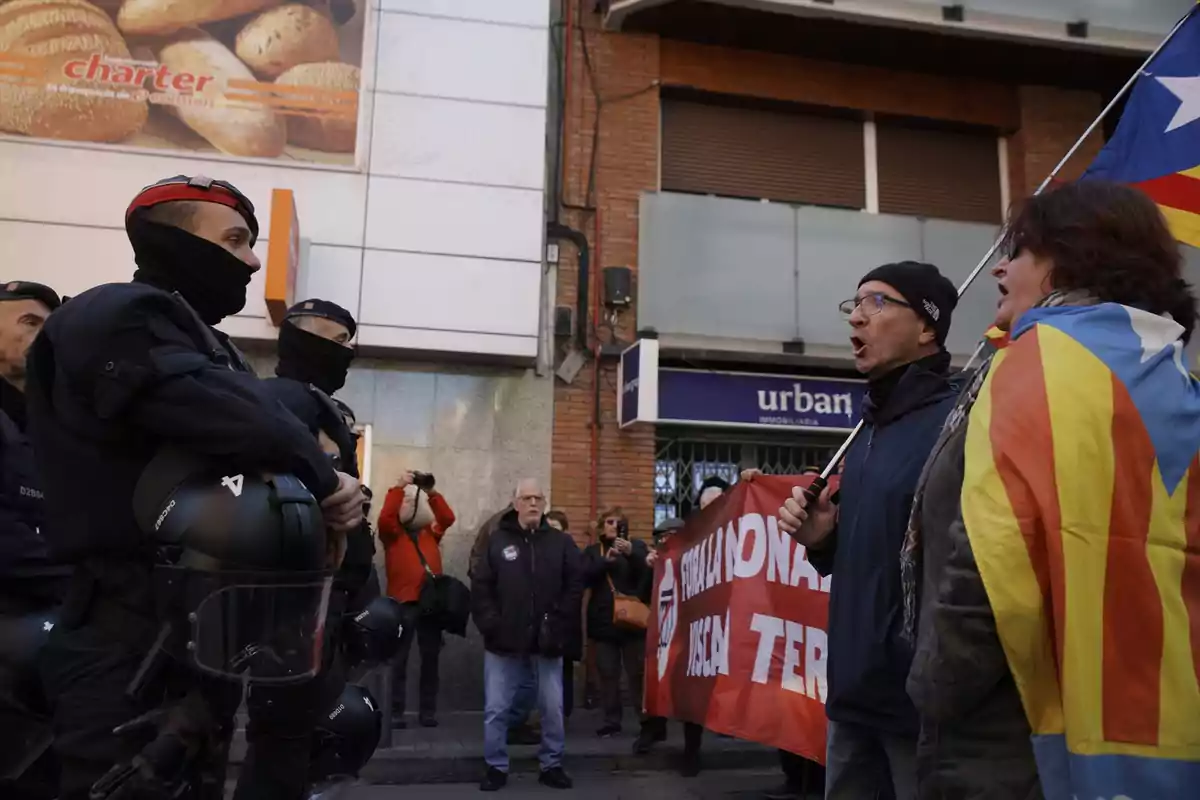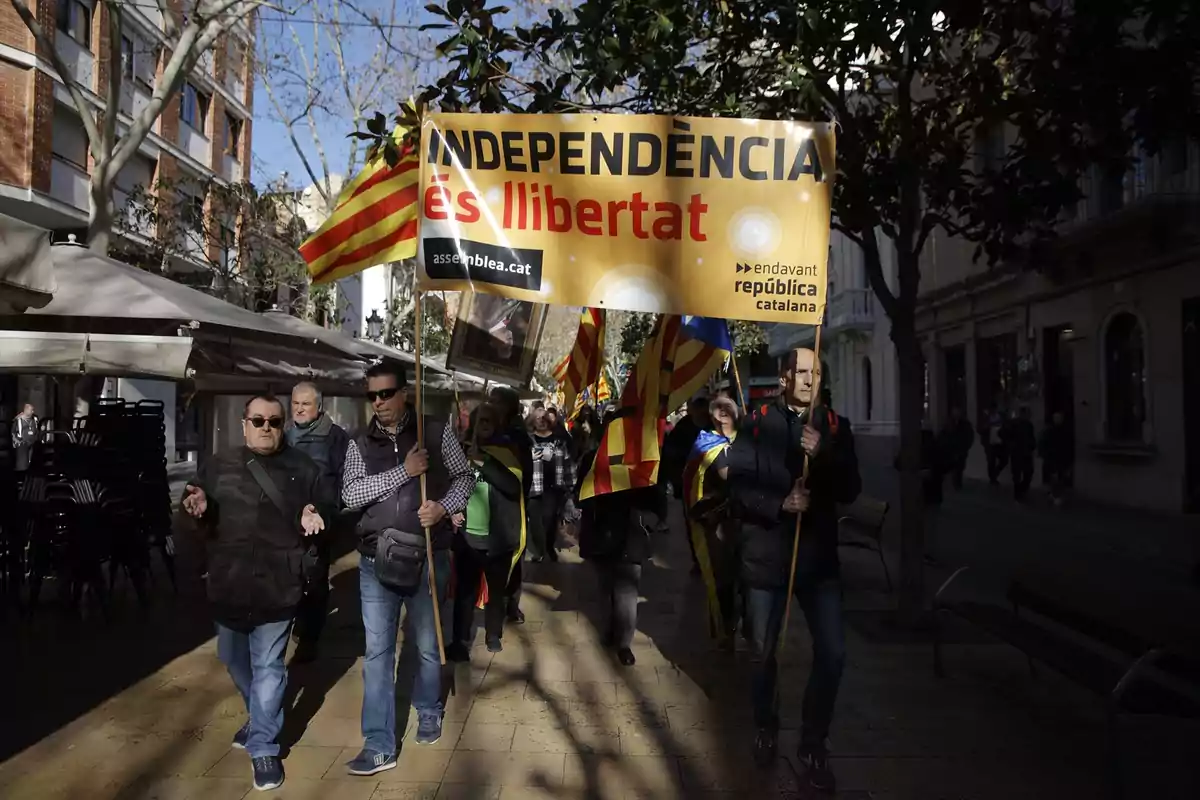
Catalan separatism only gathers 80 people at the protest against the King
Catalan separatism continues to use chaos and confrontation as tools to advance its agenda
Catalan separatism was once again visible on the streets this Monday in L'Hospitalet de Llobregat. The gatherings were called by the Catalan National Assembly (ANC) and several separatist parties.
Among the organizers are ERC, EUiA de L'Hospitalet, Jovent Republicà, and Res a Celebrar. The protest was against the presence of King Felipe VI at the Princess of Girona Social Award event.
Just under a hundred people joined the demonstration at the confluence of Rambla Just Oliveras. At 11 a.m., about 80 people arrived at the ANC's meeting point with esteladas and banners.
The protesters chanted slogans like 'Visca Catalunya lliure' and 'Fora el Borbó,' among others. Some carried an upside-down portrait of the king, and others burned a Spanish flag during the protest.
The demonstration continued with shouts of 'independence' as they descended Rambla Just Oliveras. Throughout the march, the protesters joined the gathering organized by ERC and other groups.

The group attempted to advance toward La Farga, where the event with Felipe VI was being held. However, a police cordon by the Mossos d'Esquadra stopped their advance, and the protesters were dispersed.
Despite the attempt to bypass the device, another police cordon blocked their way without significant incidents. Comuns deputy Gerardo Pisarello attended the protest and criticized the king's presence in the city.
Pisarello emphasized that the king should have recognized the Catalan victims of Franco's dictatorship. He lamented that Felipe VI spoke of talent while the Emeritus King faces corruption accusations.
The ANC called for the abolition of the Princess of Girona Foundation, accusing the monarchy of being Francoist and undemocratic. This event and the protests reflect the ongoing struggle of separatism to break away from the Spanish state.
Catalan separatism continues to use chaos and confrontation as tools to advance its agenda. Without considering the consequences for the country's stability.

Despite having increasingly reduced support, separatist groups continue to foster division and confrontation. Insisting on a narrative that doesn't take into account the majority will of Spanish citizens.
Instead of seeking dialogue and unity, they prefer to keep the flames of an unnecessary conflict alive. Hurting Catalan society and coexistence throughout the national territory.
More posts: